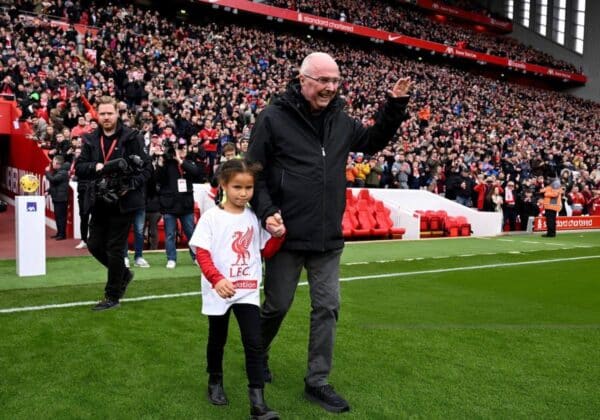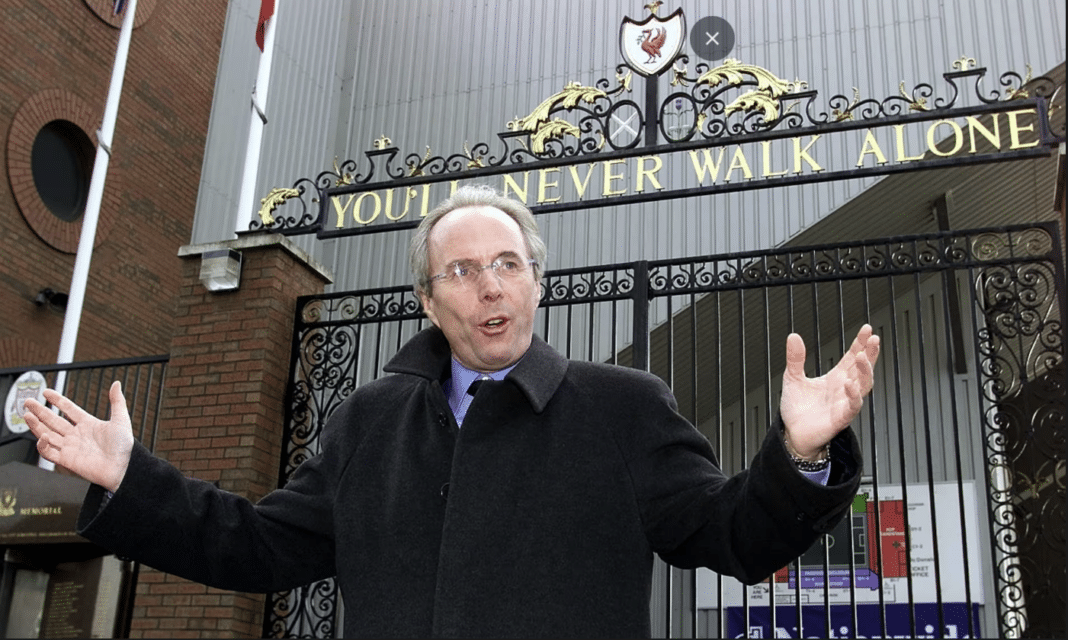The Swede managed England and 12 teams, including Manchester City, Leicester, Roma and Lazio, won 18 trophies and suffered from terminal and inoperable pancreatic cancer.
The world of football is in mourning the death of former England manager coach Sven-Göran Eriksson, who has died aged 76 at his home in Sunne, Sweden. Eriksson had been diagnosed in January 2024 with terminal pancreatic cancer, and doctors had given him a life expectancy of no more than a year.
Eriksson’s family have issued a brief statement advising of his passing and asking for respect and privacy at this difficult time.
“After a long illness, SGE (Sven-Göran Eriksson) passed away during Monday morning at his home, surrounded by family, his daughter Lina; his son Johan with his wife Amana and granddaughter Sky; his girlfriend Yanisette with her son Alcides; his brother Lars-Erik with his wife Jumnong.
The family asks that they be allowed to grieve privately.
Eriksson had been an influential and respected figure in the world of football for more than four decades. His coaching career began in his native Sweden in the late 1970s, when he made his mark with Degerfors IF. However, it was at IFK Göteborg that he achieved international prominence, winning the Swedish league and the UEFA Cup in 1982. These successes opened the door for him to join more established clubs in Europe.
Eriksson continued his career at Benfica, where he won three Portuguese league titles, one Taça de Portugal and one Portuguese Super Cup. His time at Lazio was particularly successful; under his guidance, the club won the Scudetto, the European Super Cup and the Coppa Italia in the 1999–00 season, as well as two further Coppas Italias and one Italian Super Cup. He also managed at Roma, Fiorentina and Sampdoria, showing his ability to adapt to different styles of football and obtain positive results.
One of the most memorable chapters of his career was his time in charge of the England national team. In 2001, Eriksson became the first foreign manager of the Three Lions, leading England to the 2002 and 2006 World Cups, as well as Euro 2004. During his tenure, he managed a golden generation of footballers, including David Beckham, Steven Gerrard, Wayne Rooney and Frank Lampard. His innovative tactical approach and ability to manage top-class stars left a lasting mark on English football.
After his time in England, Eriksson also coached in Mexico, Ivory Coast and the Philippines, and at clubs such as Manchester City and Leicester City. His last professional stint was as sporting director of the modest Swedish club IF Karlstad, a position he left due to health problems just before publicly announcing his illness.
Eriksson also had the chance to fulfil a personal dream when, on 23 March this year, he branded his day as Liverpool Legends manager ‘a memory for life’ after he achieved a life-long dream of managing Liverpool at Anfield, leading his side to a 4-2 win with the likes of Fernando Torres, Djibril Cisse and Gregory Vignal on the score sheet.
He was all smiles as he took to the Anfield turf before the game, cameras surrounding him and the 60,000 fans in attendance clapped his arrival as he bowed his head in acknowledgement.

Following the game, Eriksson hailed the charity game and explained his pride in leading his team at Anfield. The opportunity to manage the Legends came as a result of a personal invitation from Jurgen Klopp.
The appearance allowed him to return to his favourite team and close an important circle in his life.
In an emotional message during the European Championship in Germany, Eriksson shared information about his battle with cancer and his wish to be remembered positively: “Don’t regret it. Smile. Thank you for everything, coaches, players and fans. It’s been fantastic. Take care of yourselves and take care of your life. And live it! Goodbye.” In the documentary ‘Sven’, broadcast on Amazon Prime Video, the Swede left a legacy of strength and optimism in the face of adversity.
Sven-Göran Eriksson will be remembered as a pioneer in international football, a coach who left an indelible mark on every team and national team he managed. His legacy and impact on the sport will live on as a testament to his exceptional career and contribution to world football.





